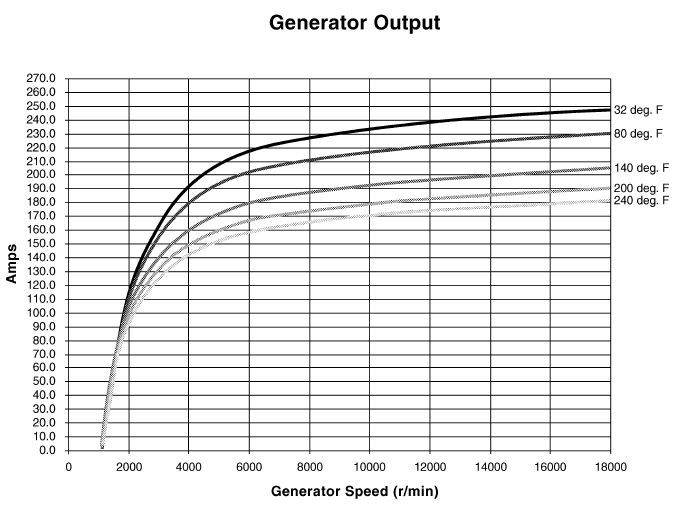Voltage Issue?
#16
Rennlist Member
The gauge is displaying battery voltage and the voltage level is "high" because the battery is being supplied a higher voltage to recharge it.
The gauge in my Turbo behaves the same way after an engine start and for some times/miles after engine start.
But after a drive of some distance -- it happens on my 30 mile drive to/from the office -- the voltage level drops as the battery becomes recharged.
If I wanted the battery voltage gauge in my Turbo to display nearly 13V or higher all the time I'd have to avoid driving it enough to recharge the battery so every time I started the engine -- as long as the battery lasted from this abuse -- the charging voltage would be high and remain high.
However, I like to see the battery voltage level drop over time. It tells me I'm driving the car long enough after engine start that the battery is being recharged and it and the alternator are healthy.
If the battery voltage reading remained high even after some 15 minutes or more of engine run time I'd be concerned the battery was not that healthy that the alternator was dealing with a battery that had collected sulphur on its plates. The sulphur coming from the battery acid. If this condition becomes too advanced -- the sulphur hardens over time if left on the plates -- recharging will not cause the sulfur to leave the plates and the battery will not regain a full charge.
The gauge in my Turbo behaves the same way after an engine start and for some times/miles after engine start.
But after a drive of some distance -- it happens on my 30 mile drive to/from the office -- the voltage level drops as the battery becomes recharged.
If I wanted the battery voltage gauge in my Turbo to display nearly 13V or higher all the time I'd have to avoid driving it enough to recharge the battery so every time I started the engine -- as long as the battery lasted from this abuse -- the charging voltage would be high and remain high.
However, I like to see the battery voltage level drop over time. It tells me I'm driving the car long enough after engine start that the battery is being recharged and it and the alternator are healthy.
If the battery voltage reading remained high even after some 15 minutes or more of engine run time I'd be concerned the battery was not that healthy that the alternator was dealing with a battery that had collected sulphur on its plates. The sulphur coming from the battery acid. If this condition becomes too advanced -- the sulphur hardens over time if left on the plates -- recharging will not cause the sulfur to leave the plates and the battery will not regain a full charge.
The battery was replaced about 9 months ago to a larger capacity Bosch battery.
There is no way the battery can charge with a voltage in 12 volt range.
Think your confusing amperage and voltage!
Textbook answer
“As the battery reaches a state of full charge, the electromotive force becomes strong enough to oppose the current flow from the alternator, the amperage output from the alternator will drop to close to zero, while the voltage will remain at 13.5 to 14.5. When more electrical power is used, the electromotive force will reduce and alternator amperage will increase. It is extremely important that when alternator efficiency is checked, both voltage and amperage outputs are checked. Each alternator has a rated amperage output depending on the electrical requirements of the vehicle.”
#17
Race Car
+1. Usually the displayed voltage drops the longer you drive because the engine warms up and the voltage regulator reduces the charging rate so as to not boil the solution inside the battery cells. It does not drop because the battery is fully charged. Of course this works best when the regulator is in the same place as the battery, which is not the case on a 911.
Dan
Dan
#18
Rennlist Member
+1. Usually the displayed voltage drops the longer you drive because the engine warms up and the voltage regulator reduces the charging rate so as to not boil the solution inside the battery cells. It does not drop because the battery is fully charged. Of course this works best when the regulator is in the same place as the battery, which is not the case on a 911.
Dan
Dan
#19
Race Car
From https://www.my-cardictionary.com/ele...egulator.html:
The alternator regulator also automatically adapts the battery charge to the ambient temperature. This is necessary because the charge characteristics of the car battery are not the same at -20 °C, for example, as they are at +30 °C. The regulator takes care of the need to adapt the battery charge automatically with a charging curve which is specified in the data sheets as a temperature coefficient.

Dan


